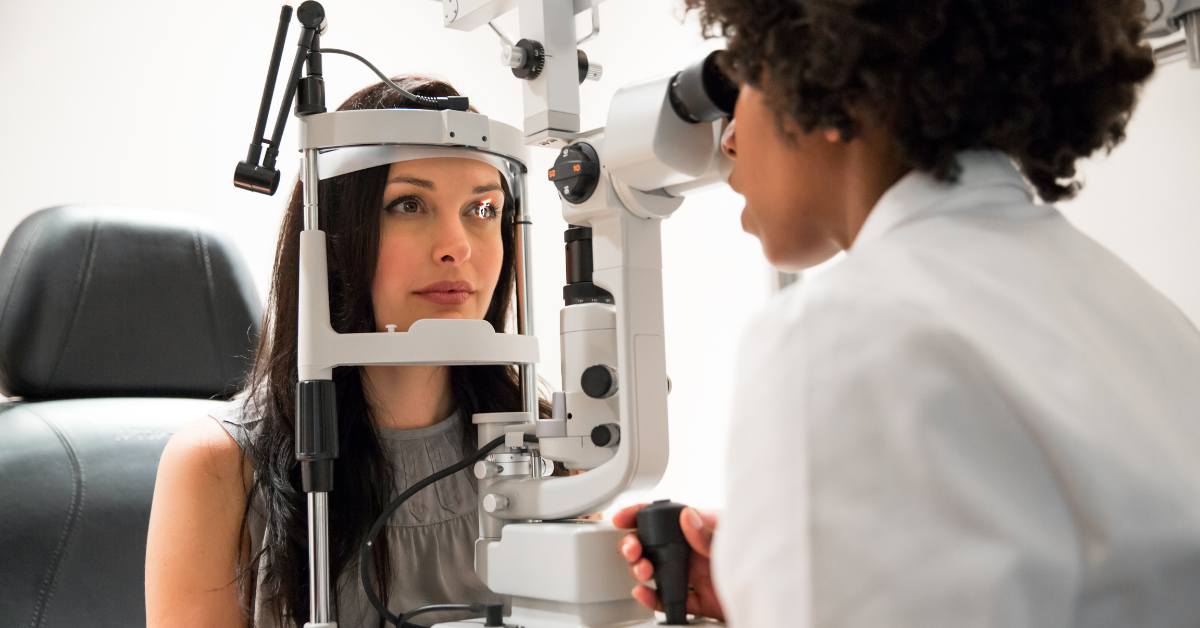Scheduling regular appointments with an ophthalmologist can help prevent any possible concerns from poor vision or vision loss. It should also be noted that selecting an ophthalmologist who knows his job is essential from the point of view of good eyes and their health. Every patient should know how to choose a respectable ophthalmologist registered with a recognized medical institution with the right qualifications. Verify about supplementary certifications or intense courses that can improve skills & specialize in addiction.
If you experience any of the warning signals indicated below or if your eyesight has become a matter of concern, arrange for an examination by an eye doctor Fort Worth without delay.
Changes in vision
You can suddenly or gradually experience blurring vision in one or both eyes. Furthermore, an affliction of both eyes is possible as well. This condition can be caused by, e.g., acuity issues of nearsightedness, farsightedness, astigmatism, cataract, macular degeneration, or diabetic retinopathy.
Seeing with a lot of difficulty when there is a lack of light, such as at night or in a room with darkened lights, can result from cataracts, lack of vitamin A, or various retinal problems.
Colors can appear differently than expected, such as when one sees some colors better than others or has trouble distinguishing between certain shades; these aspects can be related to conditions like color vision deficiency (red-green colorblindness) or optic nerve problems.
Eye pain or discomfort
The pain and discomfort that one undergoes in the eyes and the associated issues often call for the intervention of an ophthalmologist. Infectious diseases, including conjunctivitis (“pink eye”), blepharitis (the inflammation of eyelids), and keratitis (the corneal infection), can all result in the pain, redness, and discomfort associated with the affected eye.
If an unknown object gets into your eyes, it can be irritating, pain-giving, and answer-making of the eyes. Tiny particles of dust or sand can bring a lot of discomfort, resulting in highly severe corneal abrasions.
Acute angle-closure glaucoma, which is characterized by a significant rise in eye pressure, can result in eye pain, a headache, blurred vision, and a lack of appetite accompanied by nausea and vomiting. Thus, the only solution is immediate medical attention to prevent permanent vision loss.
Sensitivity to light
If you face a prolonged condition of light sensitivity, especially if any other bothersome accompanying symptoms such as eye pain or redness are detected, check with an ophthalmologist or your healthcare professionals for diagnosis and a treatment program. Such practitioners can discover the root problem of your symptoms and recommend the most appropriate treatment, which is supposed to solve the discomfort and protect your eyes.
Eyelid infections like conjunctivitis (pink eye), keratitis (corneal infection), or uveitis (inflammation of the eye’s middle layer) can affect pupil size in addition to causing symptoms such as redness, pain, sensitivity to light, and blurred vision.
Herneditivity of eye diseases
A family history of eye diseases, in turn, would increase the chance of developing some deterrent condition. The closer you stand relative to the family members with glaucoma, the more likely it is that you will develop this condition as well, with a significant risk of occurrence being first-degree relatives (parents, siblings). Glaucoma is a group of diseases of the eye in which the optic nerve is damaged, and vision is lost if there is no treatment for the problem.
Diseases affecting the retina, such as retinal detachment, retinitis pigmentosa, or inheritable retinal anomalies, may be influenced by genetic factors. However, if this inherited prompt poses a danger, it is vital to be aware of this risk and discuss it with an eye doctor.
Diabetes or high blood pressure
Diabetes and hypertension (high blood pressure) are systemic ailments that desperately tell on various parts of the body, including the eyes. Therefore, eye examinations are mandatory for diabetic or high blood pressure sufferers since they have an ascent of early eye complications signs, and they need to take an intervention promptly to avoid vision loss.
Diabetes can progress to a condition known as diabetic proliferative retinopathy, which affects the blood vessels in the retina. By raising the sugar levels in the blood, these tiny retina vessels may get damaged, and the fluids may leak from these vessels or become blocked. These may be vision impairments, like seeing blurred objects, floaters, or a black curtain, which can be severe vision problems if not treated on time. Frequent eye checks – even for simply catching diseases that retinal degeneration comes with diabetes and other eye diseases – feature vital contributions to people with diabetes who should undergo them.





Be First to Comment